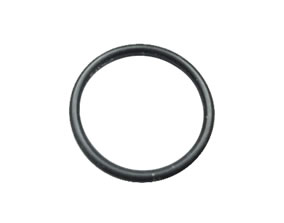
Conical seals are used extensively in the aerospace manufacturing industry. Like all seals, they are designed to prevent leaks. Seals create a sealed environment while subsequently preventing gases, fluids or other substances from leaking. Conical seals, however, feature a unique shape that distinguishes them from other types of seals.
What Are Conical Seals?
Conical seals are cone- or ring-shaped mechanical seals. They are used around the mating surfaces of hoses and lines. Mating surfaces, of course, are susceptible to leaks. If a hose or line contains a pressurized substance, it may leak at the mating surface where it connects to a piece of equipment. A conical seal will prevent the hose or line from leaking by sealing the mating surface.
While available in different styles, most conical seals are made of an elastic material. Their elastic construction allows them to expand when exposed to heat and pressure. And conical seals will revert to their original shape and size after cooling back down.
Common materials in which conical seals are made include the following:
- Polyurethane
- Silicone
- Flurosilicone
- Nitrile
How Conical Seals Work
To prevent hoses or lines from leaking, you may want to use a conical seal. Conical seals work by forming a leakproof barrier around mating surfaces.
Hoses and lines may carry pressurized substances, such as fluids and gases. As fluids or gases heat up, they’ll expand. Thermal expansion will then increase the pressure of the fluids or gases — and too much pressure can lead to leaks around mating surfaces. A conical seal, though, will prevent the hose or line from leaking. It will seal the mating surface while ensuring that the pressurized fluid or gas remains isolated to the appropriate passage.
Common Applications for Conical Seals in Aerospace Manufacturing
How are conical seals used in the aerospace manufacturing industry? Airplanes feature pressurized hoses and lines. Fuel lines, for instance, are pressurized to about 25 to 50 pounds per square inch (PSI).
You’ll typically find conical seals around the mating surfaces of fuel lines. Fuel lines run from the fuel tanks to the jet engines. They are often equipped with conical seals around mating surfaces to prevent the pressurized fuel from leaking out of the lines.
Many airplanes use conical seals for hydraulic lines as well. Hydraulic lines contain pressurized fluid. The pressurized fluid may leak out of the lines around mating surfaces. Conical seals secure these mating surfaces so that the hydraulic lines remain leak-free.



